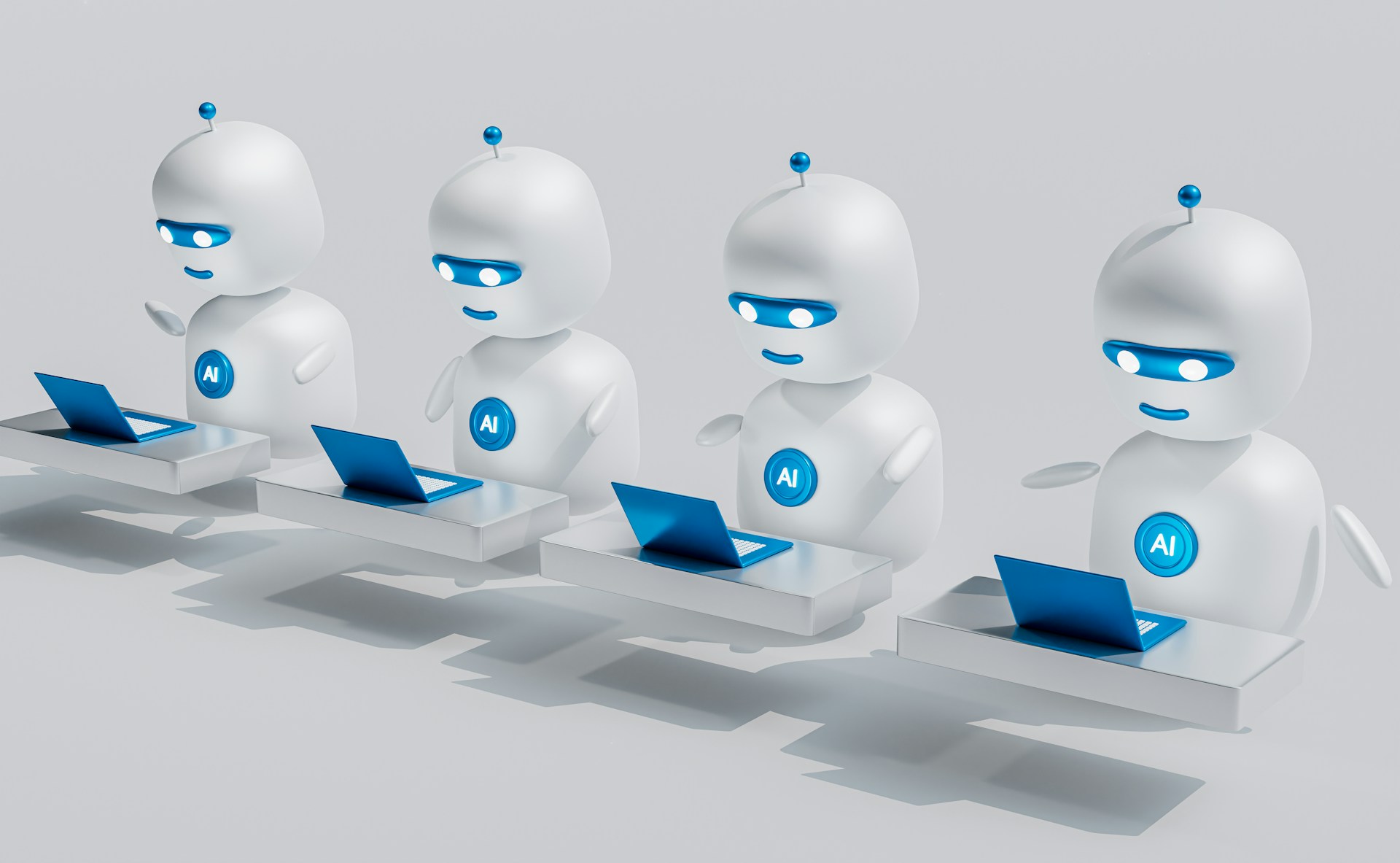In the rapidly evolving landscape of technology, few innovations have captured the imagination and transformed industries as profoundly as Generative AI. As we stand at the cusp of 2025, it’s clear that this revolutionary technology is not just a passing trend but a fundamental shift in how we create, innovate, and solve problems across various sectors.
The Evolution of Generative AI
Generative AI has come a long way since its inception. Today’s models, building upon the foundations laid by GPT-3 and DALL-E, have reached unprecedented levels of sophistication. The latest iterations, such as GPT-4o and DALL-E 3, showcase remarkable improvements in language understanding, content generation, and image creation.
These advancements have led to AI systems that can:
- Generate human-like text with a nuanced understanding of context and tone
- Create photorealistic images and videos from textual descriptions
- Compose music that rivals the work of human artists
- Write complex code and debug existing software
Transforming Industries
1. Content Creation and Marketing
The content creation landscape has been revolutionized by Generative AI. Marketing agencies are leveraging AI to produce personalized content at scale, significantly reducing time and costs. For instance, Adidas’ 2024 campaign utilized AI to create thousands of unique ad variations tailored to different demographics, resulting in a 40% increase in engagement rates.
2. Healthcare
In the realm of healthcare, Generative AI is revolutionizing the industry by making significant and groundbreaking contributions:
- Drug Discovery: AI models are accelerating the process of identifying potential drug candidates, reducing the time from discovery to clinical trials by up to 30%.
- Personalized Treatment Plans: By analyzing vast amounts of patient data, AI is helping doctors create highly tailored treatment strategies.
- Medical Imaging: AI-enhanced imaging techniques are improving diagnostic accuracy, with some studies showing a 15% increase in early cancer detection rates.
3. Finance and Banking
The financial sector is fully embracing Generative AI for a variety of innovative applications and transformative processes. This advanced technology is being used to enhance customer service through the development of sophisticated chatbots that can handle a wide range of inquiries and provide personalized financial advice. Additionally, Generative AI is being leveraged to improve fraud detection and risk management by analyzing vast amounts of data to identify unusual patterns and potential threats with greater accuracy and speed. Furthermore, it aids in automating routine tasks and processes, boosting efficiency and allowing financial professionals to focus on more strategic activities. The integration of Generative AI into the financial sector is revolutionizing how institutions operate, interact with clients, and ensure security, ultimately leading to a more robust and dynamic financial landscape.
- Fraud Detection: Advanced AI models can identify complex patterns indicative of fraudulent activities, reducing financial crimes by up to 60% in some institutions.
- Algorithmic Trading: AI-driven trading systems are outperforming traditional methods, with some hedge funds reporting a 25% increase in returns.
- Customer Service: AI chatbots have evolved to handle complex queries, resolving up to 85% of customer issues without human intervention.
4. Creative Industries
Even those creative fields that have been traditionally centered around human input and ingenuity are experiencing significant impacts:
- Film and Animation: AI is being used to generate storyboards, create special effects, and even write screenplays. The 2024 indie film “Neural Dreams” was entirely scripted by AI and received critical acclaim.
- Music Production: AI-composed music is gaining traction, with several AI-generated tracks reaching the top 100 charts in 2024.
- Fashion Design: AI is assisting designers in creating new patterns and predicting trend cycles with unprecedented accuracy.
Ethical Considerations and Challenges
As Generative AI continues to evolve and make significant strides, it introduces a myriad of both ethical and practical challenges:
- Authenticity and Misinformation: The ability of AI to create highly convincing fake content raises concerns about the spread of misinformation. Efforts are underway to develop robust detection systems and watermarking techniques for AI-generated content.
- Job Displacement: While AI is creating new job categories, it’s also automating many existing roles. A 2024 World Economic Forum report estimates that by 2030, 85 million jobs may be displaced by AI, while 97 million new roles may emerge.
- Data Privacy: The vast amounts of data required to train AI models raise questions about data privacy and consent. Regulatory bodies worldwide are working on frameworks to address these concerns.
- Bias and Fairness: Ensuring that AI systems are free from bias remains a significant challenge. Efforts are being made to develop more inclusive and fair AI models.
The Road Ahead
As we gaze into the future, numerous emerging trends are influencing and directing the course of Generative AI’s development:
- Multimodal AI: The integration of different AI capabilities (text, image, audio) into unified systems is expected to lead to more versatile and powerful AI assistants.
- Edge AI: The push towards running AI models on edge devices will make AI more accessible and reduce latency in AI-powered applications.
- AI Governance: As AI becomes more pervasive, we can expect more comprehensive regulatory frameworks to emerge, balancing innovation with ethical considerations.
- Human-AI Collaboration: The focus is shifting towards developing AI systems that augment human capabilities rather than replace them entirely.
Conclusion
Generative AI stands at the forefront of technological innovation in 2025. Its impact across industries is profound and far-reaching, offering unprecedented opportunities for creativity, efficiency, and problem-solving. As we navigate this new landscape, it’s crucial to approach these advancements with a balance of enthusiasm and responsibility, ensuring that the benefits of AI are harnessed for the greater good while mitigating potential risks.
The journey of Generative AI is just beginning, and the possibilities it presents are limited only by our imagination and our commitment to ethical development. As we continue to push the boundaries of what’s possible, one thing is clear: the age of Generative AI is here, and it’s reshaping our world in ways we’re only beginning to understand.
Share your thoughts and suggestions on the above article. Kindly note that all comments are moderated according to our comment policy, and your email address will NOT be published.




